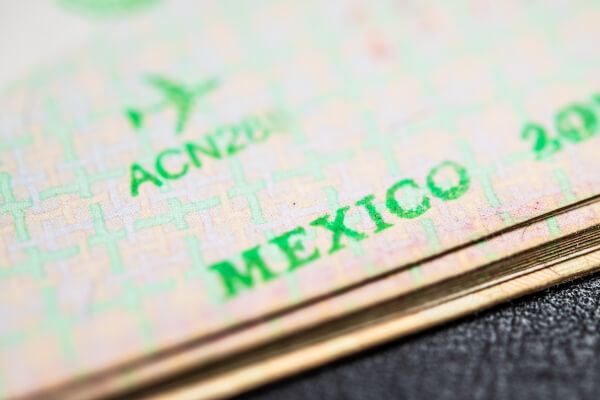Hiring Independent Contractors in Canada: A Complete Guide for Businesses
Learn how to hire independent contractors in Canada. Understand legal rules, tax responsibilities, and how to avoid misclassification with this guide.

Overdue payments can have a negative effect on business cash flow and the ability to manage day-to-day operations. And yet it’s a common problem, as 49% of the invoices issued by businesses in the United States become overdue.¹
Overdue international payments create extra challenges. It can take longer to receive funds from abroad, debt collection laws differ across borders, and exchange rate fluctuations can affect the amount of money you receive.
This guide will explain what you can do if an international payment is overdue, in a professional and effective way. We also offer some tips on how to avoid invoices becoming overdue in the first place.
| In this article: |
|---|
The longer the time that passes from the payment due date, the lower the chances that an invoice will be paid. If a customer abroad has failed to pay on time, there are some steps you can take to collect the money as soon as possible.
First, make sure that the payment terms were clear and included on the invoice. Invoices should include the payment due date as well as the date of issue. This makes it easier to send the customer a past due invoice letter if you have written proof of the agreed terms.
Switching from email to more formal communication by sending the customer a notice to remind them the payment is late can encourage them to act.
Include the payment references, invoice number, and the original payment due date. Also include the total amount they owe, including any late charges, and a final deadline.
Be sure to keep it professional and polite. Maintaining good customer relationships is important. It can help to resolve problems without affecting your future business with them.
If you still do not receive payment after sending a past-due notice, you may need to follow up with a second letter. This should be polite but more formal and specify a hard deadline for receiving the funds.
You can also follow up with a phone call to confirm whether the customer received the letters. Check if there's anything you can do or any missing information you can provide to help them ensure the payment arrives.
Trying to collect an overdue international payment can be more complex than local payments. So you need to consider these things when you follow up with the customer.
Exchange rates can change in the time since you made the original sales agreement. For instance, you may have converted a $2,000 order into euros for the customer. But the value of the euro could have risen against the dollar in the meantime. This would make the euro payment now worth less than $2,000. Unless the customer used a forward contract to fix the rate, you may need to adjust the amount they owe.
Money transfer regulations, compliance requirements, tax rules, and debt collection procedures differ across countries.² This can require more paperwork, which can result in errors that delay the payment. They can also make it harder to recover payment from the customer.
Depending on the country, international bank transfers can take several working days. Payments can then fail, even if the customer has made successful transfers to you in the past. Check with the customer, as they may have made the payment, but it has yet to clear.
There are a few reasons international invoice payments can take longer than local payments. These include:
Public holidays. Bank transfer times do not include local public holidays, which can extend for several days in some countries.
Weekends. Weekends in countries in the Middle East and some other parts of the world are Friday and Saturday, rather than Saturday and Sunday.
Bank cut-off times and time zones. Payments a bank receives after a certain time of day are not initiated until the next working day. And if the customer is in a different time zone this can add further time to the transfer.
Payment provider. Some banks and financial institutions can take longer to process international payments – especially to certain countries. Whereas service providers like Wise offer fast transfer times.
Local banking infrastructure. Payments between some countries involve at least one intermediary bank, which can cause delays.
Payment method. If the customer sent an international money order by mail, it would take longer to arrive than if they sent a wire transfer. This would lead to a delay in your business receiving the funds.
Payment information errors. If the customer makes a mistake in the information they enter when making the payment, the transaction can fail. They will need to start again, which can add several working days to the process.
There are some things you can do to prevent the payment from becoming late in the first place:
If you’re doing business across borders, a Wise Business account makes it easier for international customers to pay you. You can provide local account details without worrying about currency conversion costs – which can result in faster payments.
Register with Wise Business today
Wise Business is a smart online alternative to traditional banks, designed with international transactions in mind. It offers local account details for 10 countries, e.g. a UK international banking number for a US business. That makes it easier to receive payments from abroad without the need for intermediary banks and cross-border fees.
Open a Wise account today to receive fast international payments.
| 💡 For all you need to know about invoices, don't forget to read and bookmark the ultimate guide to invoicing from Wise! |
|---|
Sources:
All sources checked May 25, 2023.
*Please see terms of use and product availability for your region or visit Wise fees and pricing for the most up to date pricing and fee information.
This publication is provided for general information purposes and does not constitute legal, tax or other professional advice from Wise Payments Limited or its subsidiaries and its affiliates, and it is not intended as a substitute for obtaining advice from a financial advisor or any other professional.
We make no representations, warranties or guarantees, whether expressed or implied, that the content in the publication is accurate, complete or up to date.

Learn how to hire independent contractors in Canada. Understand legal rules, tax responsibilities, and how to avoid misclassification with this guide.

Learn how to hire independent contractors in Brazil. Understand tax rules, compliance, contracts, and how to avoid misclassification risks.

Learn how to hire and pay independent contractors in Mexico. This article also includes an FAQ and best practices about working with contractors in Mexico.

Learn how to navigate the overseas worker recruitment. Discover legal requirements, sourcing strategies, visa compliance, and tips for international hiring.

Paying overseas vendors is common, but the hidden costs of B2B cross-border payments aren’t. Learn how to simplify international business payments today.

B2B payment processing doesn’t have to be hard. Learn how growing businesses can simplify cross-border transactions, streamline invoicing and get paid faster.